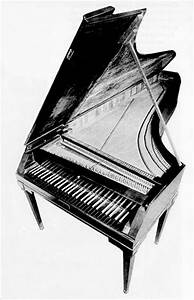“Music is a moral law. It gives a soul to the universe, wings to the mind, flight to the imagination, a charm to sadness, and life to everything. It is the essence of order, and leads to all that is good, just and beautiful, of which it is the invisible, but nevertheless dazzling, passionate, and eternal form.” Plato
 |
Carl Friedberg 1872-1955
|
Carl Friedberg was one of the most successful and distinguished pianists who emerged from the studio of Clara Schumann. He was one of the early piano professors at what would later become the Juilliard School. From his studio came some of the biggest names of the first part of the 20th century: Malcom Frager, Bruce Hungerford, William Masselos and Elly Ney. His professional debut was with the Vienna Philharmonic under the baton of Gustav Mahler. Not so bad.
Now here's where I sat up and took notice when reading his bio. In 1893 he played an all Brahms program with the composer in the audience. Apparently, Brahms admired his playing and coached him in private on most of his pieces. Coached by Brahms! So, when we listen to his playing, we may in fact be coming as close as we can to hearing Brahms himself. Maybe. It's a big responsibility to pile onto Friedberg's hands. Still, we listen to his one commercial recording—Friedberg apparently disliked recorded piano sound—and it gives us food for thought. The eighty-one-year-old pianist plays here the first of the Opus 117 Intermezzos: Carl Friedberg.
 |
| J.S. Bach |
A student asks for opinions regarding articulation when playing Bach on the piano. Should it mostly be detached in order to imitate the harpsichord, she wonders, "which couldn't sustain long notes like the modern piano does."
She's right. The harpsichord can't sustain long notes "like the modern piano," though it can sustain significantly longer than many modern pianists seem to think. This is based on my observation of how short and detached harpsichord imitators of today play.
 |
| Harpsichord |
And to those who declare Bach didn't know, play, approve of or write for the new fortepiano I say nonsense. Though his friend and instrument builder Silbermann was at first unsuccessful in
 |
| Fortepiano |
impressing the composer with his first attempts in the 1730s, eventually Bach declared his "complete satisfaction" with the improved fortepiano. According to pianist and musicologist Charles Rosen, the six-voice ricercare from The Musical offering, a fugue many consider Bach's greatest, was "the most significant piano work of the millennium, as it is perhaps the first piece composed for the recently invented piano—at least, the first piece that a composer knew would certainly be played on a piano."
Articulation is of course a main consideration in Bach. How we treat the differences between long and short notes is crucial to bringing the music to life and giving it its Baroque flavor. Some rules of thumb (no pun intended) might be to play conjunct notes more connected and disjunct notes more detached. Two-note slurs are virtually always realized with emphasis on the first note, relaxing on the second. This can be achieved with sound (louder/softer) or by length of notes (longer/shorter). The last note in a group of conjunct notes might be articulated. These are, of course, just general guidelines. As CPE Bach writes: "If it doesn't sound good, don't do it." In the final analysis, our expressive decisions are based on taste, for which there is often no accounting—and study.
In the introduction to the Inventions and Sinfonias Bach writes: "Those desirous of learning... [will] ABOVE ALL [my emphasis] achieve a cantabile style in playing." Length of notes relative to one another becomes more crucial in quick, characterful pieces; it is less so in slower arias. We get to decide if we want to imitate the harpsichord, as many do, or play the piano using its resources, which I personally believe Bach would applaud. As long as the counterpoint isn't swamped with pedal, the piece will still sound like Bach. My personal view is that if you want "authenticity," play the harpsichord, which I have done on occasion. I prefer the piano.
I came across a comparison of these instruments, which includes the clavichord, reportedly Bach's favorite: Listen.



